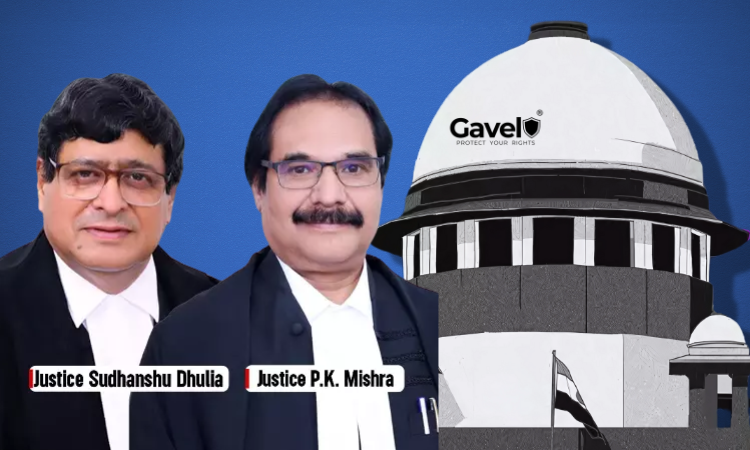In a landmark judgment, the Supreme Court of India has affirmed the conviction of three individuals found guilty of contempt of court for fabricating and presenting forged High Court orders to obstruct judicial proceedings. This case underscores the judiciary’s unwavering commitment to upholding the sanctity of legal processes and deterring attempts to undermine the rule of law.
The controversy originated from a civil dispute where the District Munsiff Court, Tiruchengode, issued a decree on November 17, 2004, in favor of J.K.K. Rangammal Charitable Trust, ordering the recovery of possession and arrears of rent from certain tenants. The tenants appealed the decision, but their appeals were dismissed. Consequently, the decree-holder initiated execution proceedings to enforce the court’s order. During the execution process, the tenants produced documents purporting to be interim stay orders from the Madras High Court, effectively halting the execution. However, upon scrutiny, these documents were discovered to be forgeries—fabricated orders created to mislead the court and obstruct justice.
The revelation of the forged documents prompted the decree-holder to file complaints with both the High Court and the Superintendent of Police, Namakkal District. An investigation ensued, leading to the arrest of several individuals involved in the forgery, including:
- Shanmugam @ Lakshminarayanan (Contemnor No. 4)
- M. Muruganandam (Contemnor No. 3)
- S. Amal Raj (Contemnor No. 7)
The investigation uncovered that the fake court orders were produced with the assistance of a digital center operator, highlighting a deliberate and coordinated effort to deceive the judiciary. Subsequently, the Madras High Court initiated contempt proceedings against the individuals involved. After thorough hearings, the High Court convicted the contemnors, sentencing them to six months of simple imprisonment for their actions that blatantly undermined the authority and dignity of the court.
The convicted individuals appealed the High Court’s decision, bringing the matter before the Supreme Court. Upon careful examination, the Supreme Court upheld the convictions, emphasizing the gravity of the contemnors’ actions. The Court noted that the deliberate fabrication and presentation of forged judicial documents constituted a severe affront to the administration of justice. The Supreme Court’s judgment serves as a stern warning against attempts to manipulate or obstruct judicial processes. It reinforces the principle that the integrity of the legal system must be preserved, and any actions that threaten this integrity will be met with stringent consequences.
This ruling has far-reaching implications for the legal community and the public at large:
- Deterrence Against Judicial Misconduct: The affirmation of the convictions sends a clear message that any attempt to deceive or manipulate the judiciary will be met with severe penalties.
- Preservation of Judicial Integrity: By upholding the sanctity of court proceedings, the judgment reinforces public confidence in the legal system.
Accountability in Legal Processes: The case highlights the importance of accountability and the need for vigilance against fraudulent activities within the legal framework.

